|
The
town centre

The four main streets of Bourne, North Street, South Street, West Street and Abbey Road, converge in the town centre. It was once the market place, the hub of the community, scene of sheep fairs, processions, regimental marches and various gatherings, not least the celebrations to mark Queen Victoria’s Diamond Jubilee in 1897 and the proclamation of King George V from the steps of the Town Hall in 1910.
For centuries, a friar’s cross stood on the west side of the market place. It was eight-sided and the richly carved shaft was 10 ft high on a base above threes steps. It was regarded as a place of sanctuary and was used for making proclamations and sometimes for preaching to the people of Bourne. In 1782, John Wesley, the English evangelist and founder of Methodism, stood on its steps to preach his new message of hope which heralded a movement of moral and social reform in the British Isles. The cross was taken down in 1803 but in 1860, a large ornamental drinking fountain was erected in the market place in memory of the Victorian philanthropist John Lely Ostler who had died the previous year (see The Ostler Fountain). It ceased to function as a fountain soon after its installation but the monument remained in place until 1960 when its interference with the increasing flow of vehicles through the town centre necessitated its removal and it can now be seen in the town cemetery in South road.
Traffic flows at this point continued to cause concern and crossing the road is now a most hazardous undertaking. Various schemes have been tried to regulate the traffic flows at this most dangerous intersection which is currently controlled by traffic lights with a central island protected by metal barriers for pedestrians caught while crossing West Street but there are still accidents, usually involving heavy vehicles that should have been banned from using this route long ago. The most obvious solution to maintain the through flow of traffic has
not occurred to the county highways department and that is a roundabout that would cut the queues of vehicles waiting at the various sets of traffic lights at a stroke as it has at problem junctions in many towns twice the size of Bourne.
|
THE TOWN CENTRE TODAY |
|
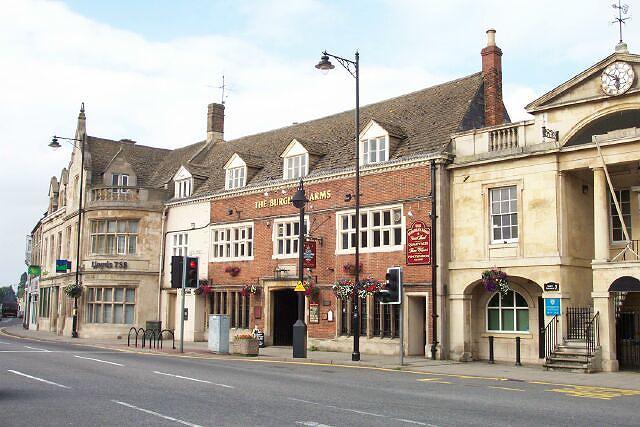 |
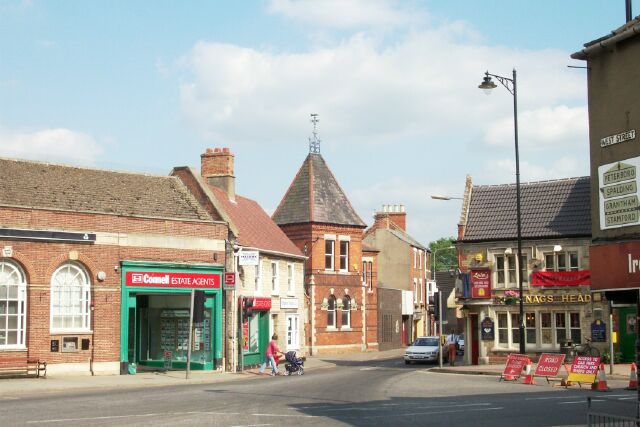 |
|
The town centre (above), looking towards
Abbey Road, pictured in June 2002 when South Street was partially
closed after a lorry collided with a roadside house two weeks
before, hence the red diversion and warning signs. The picture
below shows the town centre looking southwards with the
Nag's Head public house in the centre between Abbey Road and South
Street and the view at the bottom is taken from the public seat
outside the Nag's Head.
|
|
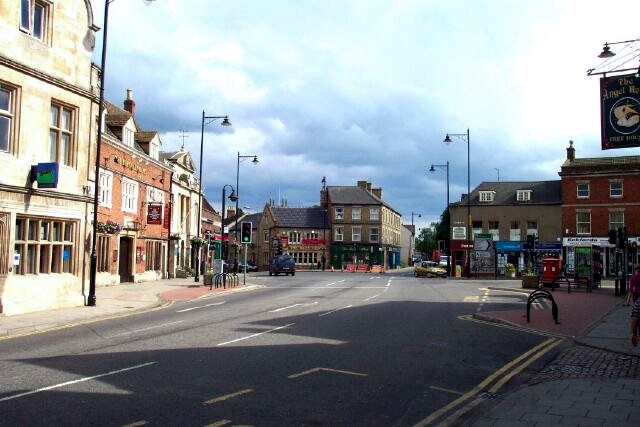 |
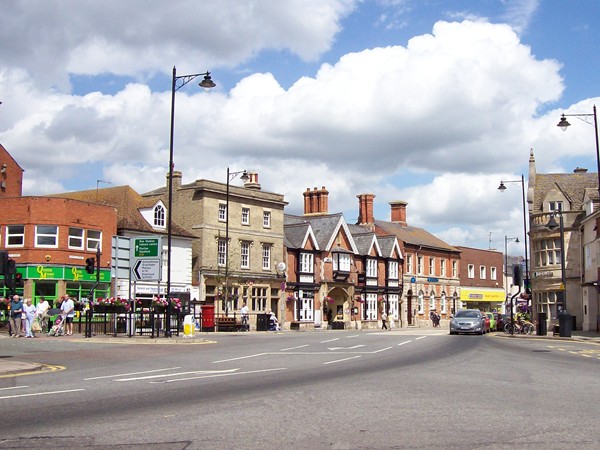 |
|
THE TOWN CENTRE IS PAST TIMES |
|
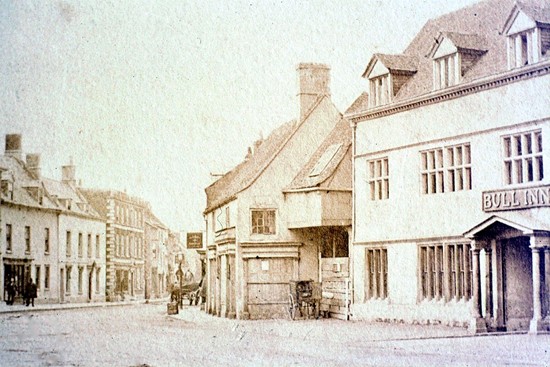 |
|
This is one of the earliest photographs of
Bourne to survive and probably dates from around 1870. The shuttered
shop is that of John Todd, tailors, hatters and hosiers, who later
moved across the road to No 1 North Street when the building was
demolished to make way for the present bank premises, built in 1880.
The side passageway led to the stables situated at the rear of the
Bull Inn, now the Burghley Arms, and this space was also
incorporated in the new building together with the end section of
the coaching inn. |
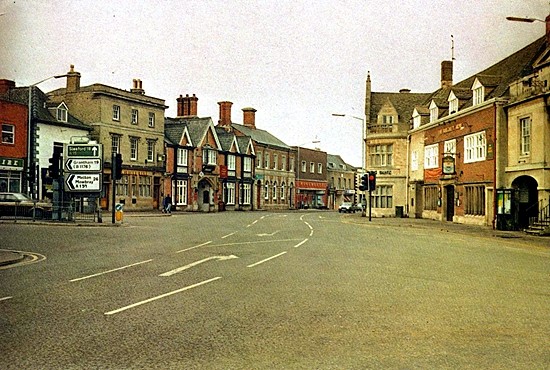 |
|
The town centre photographed for a picture
postcard in 1988. |
REVISED SEPTEMBER 2014
See also
The changing face of Bourne
town centre

Go to:
Main Index Villages
Index
|




